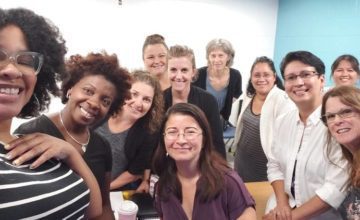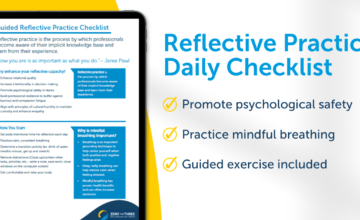Buzzwords Explained
Jargon is out. Simple and succinct explanations are in.
In this series, ZERO TO THREE’s subject matter experts tackle common terms and topics in the early childhood field.
Reflective Practice
Reflective practice fosters responsivity versus reactivity. It’s a tool that invites us to pause and slow down to become aware of thoughts, feelings and reactions that arise in everyday interactions.
Equity
At its core, equity in early childhood means that children in any space have the same opportunities regardless of their race, location, physical or mental abilities, income or background.
Child Trauma
Strong relationships with caregivers and a safe environment help young children learn to trust the world. Early traumatic events — called adverse childhood experiences or ACEs — can have the opposite effect.
Compassion Fatigue
Early childhood professionals care deeply and work tirelessly to help the children and families they work with. That’s why their role is so critical, but it’s also why they are at risk of developing of compassion fatigue.
Trauma-Informed Care
Trauma-informed care gives kids security. Whether in classroom or clinical settings, the more we support children who have had traumatic experiences, the better their chance of thriving.
Play-Based Learning
Playful exploration is a natural way of learning. When babies and toddlers get more chances to use their natural skills through play-based learning activities, they tend to stay engaged and creative learners even as they grow up.

Perinatal Mental Health
Gentle Parenting
Gentle parenting does not mean allowing a child to do whatever they want. It is approaching challenging behaviors in a gentle, steady way that doesn’t fuel further distress.
Dyadic Care
Dyadic care means caring for both babies and their caregivers as a whole. It is responsive to a family’s unique needs, taking into account their cultural preferences, family structure, and resources.

What does trauma do to a baby’s brain?

What do mental health issues in young children look like?

Understanding Brain Development in Babies and Toddlers

Three Building Blocks of Reflective Supervision for Early Childhood Professionals
Be a Baby Champion.
Your donation to ZERO TO THREE helps train thousands of early childhood providers, empower millions of families worldwide and advocate for responsive policies affecting babies and their families.

